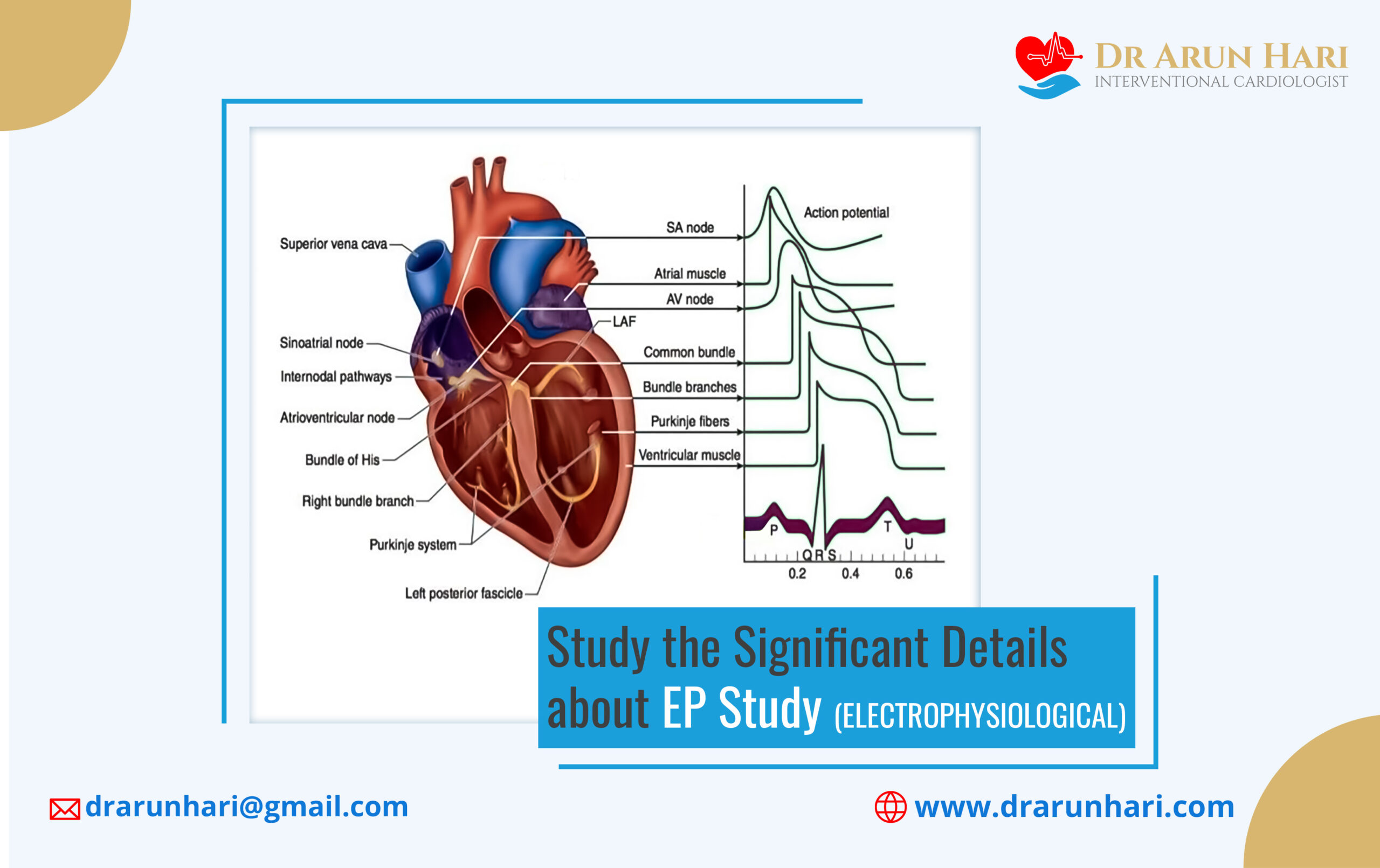What Are the Risks Associated with EP Study?
What to Expect Before the EP Study?
What to Expect During the EP Study?
What to Expect After the EP Study?
Come to the Clinic of Doctor Arun for Any of the Heart-Related Troubles
EP Study
Electrophysiology (EP) study is a medical test that helps doctors diagnose heart rhythm problems. This test is performed to evaluate the electrical activity of the heart and determine the cause of abnormal heart rhythms or arrhythmias. The EP study is a non-invasive procedure that helps in detecting, diagnosing, and treating different heart rhythm disorders.
Overview of EP Study
During an Electrophysiology study, a thin, flexible wire or catheter is inserted through a vein in the leg and threaded to the heart. The catheter is equipped with electrodes that can record the electrical signals in the heart. The procedure is usually performed under local anaesthesia, and the patient is conscious during the procedure.
Why Is EP Study Done?
An Electrophysiology study is done to help diagnose and locate the cause of heart rhythm problems such as atrial fibrillation, ventricular tachycardia, and supraventricular tachycardia. It is also done to evaluate the effectiveness of certain medications. It is also done to determine whether a patient is a candidate for procedures such as cardiac ablation or implantable cardioverter-defibrillator (ICD) placement.
What Are the Risks Associated with EP Study?
Just like any medical procedure would, an Electrophysiology study too carries its share of risks. The most common risks include bleeding, infection, bruising, and pain at the catheter insertion site. Rare but serious risks include heart attack, stroke, and puncturing of the heart or other blood vessels. However, the risks are generally low, and the benefits of the procedure outweigh the risks for most patients.
How to Prepare for EP Study?
Before the Electrophysiology study, the patient may be asked to stop taking certain medications or supplements that can interfere with the test results. The patient will also be instructed to fast for several hours before the procedure. It is important to inform the doctor if the patient has any allergies, is pregnant, or has any other medical conditions.
What to Expect Before the EP Study?
The patient would be administered with a sedative for relaxation. The patient will be awake but may feel drowsy and relaxed. The doctor will explain the procedure and answer any questions the patient may have. Vital signs of the patient would be monitored all through the Electrophysiology study procedure.
What to Expect During the EP Study?
During the procedure, the patient will lie on an exam table, and the catheter will be inserted through a vein in the groin or arm and threaded to the heart. The catheter will be positioned in different locations in the heart. This is to record electrical signals and to provoke any abnormal heart rhythms. The doctor may also administer medication to induce abnormal rhythms. The patient may feel some discomfort or pressure during the procedure, but it is generally not painful.
What to Expect After the EP Study?
After the procedure, the catheter will be removed. After that, the patient will be instructed to lie still for several hours to prevent bleeding. The patient may experience some soreness or bruising at the catheter insertion site. This should subside within a few days. The doctor will review the results of the Electrophysiology study and discuss any further treatment options if necessary.
Come to the Clinic of Doctor Arun for Any of the Heart-Related Troubles
In conclusion, the electrophysiology (EP) study is a valuable tool for diagnosing and treating heart rhythm disorders. The risks associated with the procedure are generally low, and the benefits of the test outweigh the risks for most patients. Proper preparation and communication with Doctor Arun can help you ensure a safe and successful EP study.





